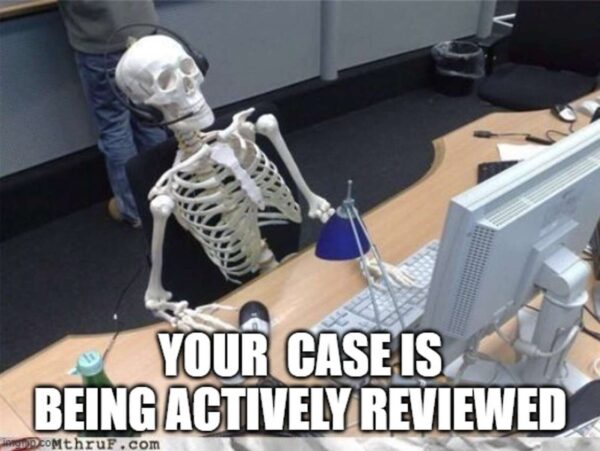This sponsored column is by Law Office of James Montana PLLC. All questions about it should be directed to James Montana, Esq., Doran Shemin, Esq., and Laura Lorenzo, Esq., practicing attorneys at The Law Office of James Montana PLLC, an immigration-focused law firm located in Falls Church, Virginia. The legal information given here is general in nature. If you want legal advice, contact us for an appointment.
We hope that all of our readers had a wonderful Thanksgiving holiday!
In our last legal post before Thanksgiving, we discussed how federal litigation can help applicants get their languishing cases unstuck at USCIS or the Department of State. We recently got news that there may be a major class action lawsuit headed for USCIS’ desk.
A group called IMMpact Litigation is currently seeking plaintiffs who have had their Form I-601A, Application for Provisional Unlawful Presence Waiver, pending before USCIS for more than six months. The plan is for IMMpact Litigation, the American Immigration Lawyers Association (AILA), and the American Immigration Council to work together to file a class action lawsuit against USCIS for the unreasonable delay in processing I-601A cases.
First, some important background information. The Form I-601A is widely used and is important application for many immigrants. This application is used for noncitizens who are currently in the United States who will later leave to seek an immigrant visa (green card) at a U.S. Embassy or Consulate abroad.
Normally, if someone has been in the United States 180 days and up to one year without a lawful immigration status, the departure would trigger a three-year bar to returning the United States. A departure after one year or more without lawful status triggers a ten-year bar to returning.
Congress largely considered family unity as a priority when drafting our immigration laws. The U.S. immigration authorities recognized that it would provide much more security for visa applicants currently in the United States to seek this waiver before departing for their visa interviews. That way, the applicant and their family members would be apart for much less time while the applicant travels for his or her interview abroad.
A couple of interesting things about this particular waiver: First, it is a discretionary benefit only available to applicants who can prove that their U.S. citizen or lawful permanent resident spouse or parent would suffer extreme hardship if they were forced to live apart or relocate to the applicant’s home country.
Note that having U.S. citizen or lawful permanent resident children does not allow a noncitizen to qualify for this waiver. Second, unlike many other immigration processes, this one does not allow the applicant to request any interim benefits like work authorization while waiting for a decision.
So why are these immigration organizations thinking about suing? In the past couple of years, the processing times have ballooned. Only two USCIS service centers process these applications: the Nebraska Service Center and the Potomac Service Center — the latter, right here in Arlington, Virginia.
Cases are taking an average of 28 months at the Nebraska Service Center. At the Potomac Service Center, the average case is taking 37 months. (37 months ago, the COVID outbreak was restricted to Hubei and Wuhan, and no one here took the possibility of a pandemic seriously. 37 months is a long time!)

These horrendously long delays just keep getting longer, which causes more uncertainty to the families affected. Plus, the longer it takes, the longer the applicant doesn’t have a green card or any other interim benefit, which may be negatively impacting their families. Many applicants, including some of our own clients, are furious about these long processing times. Doran is especially excited because she has been handling I-601A cases her entire career.
Therefore, the idea is to file a class action lawsuit on behalf of essentially all applicants who have been waiting more than six months for a decision. Why a class action lawsuit? Because there are so many people affected that it would be absurd for each and every person to file their own individual lawsuits. A class action would, in theory, benefit anyone who fits into the class, or the specific, delineated group, as defined in the lawsuit.
An important note: if you or someone you know may qualify as a plaintiff, the deadline to register as a potential plaintiff is TOMORROW, Friday, December 9. Anyone who is interested should review IMMpact Immigration’s webpage on this topic.
We hope that this litigation moves forward and is successful in helping these applicants get out of immigration limbo. As always, we appreciate questions and will do our best to respond!


